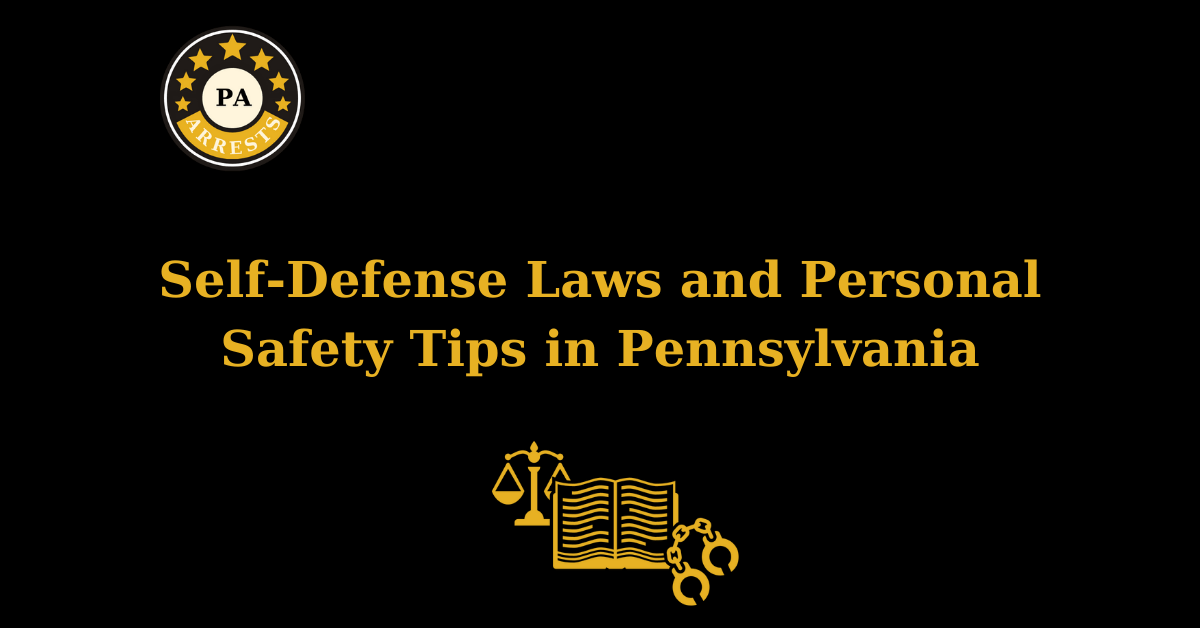Self-Defense Laws and Personal Safety Tips in Pennsylvania

PA’s Self-Defense Laws and Safety Tips is a comprehensive guide designed to equip individuals with the knowledge and skills necessary to navigate Pennsylvania’s self-defense laws effectively and ensure personal safety. In today’s unpredictable world, it is essential to understand the legal boundaries surrounding self-defense and be prepared to protect oneself and loved ones.
This guide provides an in-depth analysis of Pennsylvania’s self-defense laws, outlining the rights and responsibilities of individuals when faced with a threat to their safety. By familiarizing yourself with these laws, you can confidently make informed decisions and take appropriate actions to safeguard yourself and others.
Understanding Self-Defense Laws in Pennsylvania
Protecting yourself and your loved ones is a top priority in today’s unpredictable world. It is crucial to have a comprehensive understanding of self-defense laws to navigate through potential threats effectively. This guide aims to provide you with the necessary knowledge and skills to ensure your personal safety within the legal boundaries.
Know Your Rights and Responsibilities
Pennsylvania’s self-defense laws outline the rights and responsibilities individuals have when faced with a threat to their safety. By familiarizing yourself with these laws, you can confidently make informed decisions and take appropriate actions to safeguard yourself and others.
The Castle Doctrine: Your Home, Your Sanctuary
One crucial aspect of self-defense laws in Pennsylvania is the Castle Doctrine. This law grants individuals the right to protect themselves and their property within their own homes. It is essential to understand the boundaries and limitations of this law to ensure you are acting within the legal framework.
Stand Your Ground: Protecting Yourself in Public Spaces
Pennsylvania is a Stand Your Ground state, meaning you have the right to defend yourself in public spaces if you reasonably believe you are in imminent danger. However, it is crucial to understand the criteria that must be met for this defense to apply and the potential consequences of using force.
Effective Strategies for Personal Safety
While understanding self-defense laws is essential, it is equally important to have effective strategies to ensure your personal safety. This section will provide you with practical tips and techniques to protect yourself and your loved ones in various situations.
Situational Awareness: Stay Alert and Prepared
Being aware of your surroundings and potential threats is key to preventing dangerous situations. Learn how to assess your environment, identify potential risks, and develop a proactive mindset to stay one step ahead.
Verbal De-escalation Techniques: Diffuse Conflict Safely
Often, conflicts can be resolved without resorting to physical force. Discover effective verbal de-escalation techniques that can help diffuse tense situations and prevent violence from escalating.
Physical Self-Defense Techniques: Empower Yourself
Equipping yourself with basic self-defense techniques can provide you with the confidence and skills necessary to protect yourself if a physical altercation becomes unavoidable. Learn simple yet effective moves that can help you escape dangerous situations.
FAQs
What are Pennsylvania’s self-defense laws?
Pennsylvania’s self-defense laws allow individuals to use force, including deadly force, to protect themselves or others from imminent harm. However, the force used must be reasonable and proportionate to the threat faced.
Can I use self-defense if I am being attacked in my own home?
Yes, Pennsylvania’s self-defense laws extend to the protection of your home. If you reasonably believe that you or someone else is in immediate danger of death or serious bodily injury, you have the right to defend yourself using force, including deadly force, if necessary.
What should I do if I find myself in a potentially dangerous situation?
If you find yourself in a potentially dangerous situation, it is important to assess the threat and your options. If you can safely leave the area or avoid the confrontation, that is the best course of action. However, if you are unable to escape, you may use reasonable force to protect yourself.
Are there any restrictions on carrying self-defense weapons in Pennsylvania?
Pennsylvania allows individuals to carry concealed firearms with a valid license. However, there are restrictions on carrying firearms in certain locations, such as schools and government buildings. It is important to familiarize yourself with these laws to ensure compliance.
What are some safety tips for personal protection?
Some safety tips for personal protection include being aware of your surroundings, avoiding isolated areas, and trusting your instincts. It is also beneficial to take self-defense classes or training to enhance your skills and confidence in protecting yourself.
What should I do if I have to use self-defense?
If you have to use self-defense, it is crucial to immediately contact the authorities and report the incident. Provide them with all relevant details and cooperate fully with the investigation. It is also advisable to consult with an attorney to ensure you understand your rights and any potential legal implications.






